- Weekly Highlights from Arakan State (Jan 26 to Feb 1, 2026)
- Arakanese youth stabbed in Mae Sot urgently needs financial aid for medical treatment
- Five years on Myanmar faces uncertain military and political outlook after coup
- Myanmar Navy detains Pauktaw fishermen and demands ransom
- Junta Airstrikes on Arakan and the Consequences for Independent Media
Summer paddy cultivation continues to decline in Arakan State
Summer paddy cultivation in Arakan State has dropped significantly in recent years due to rising commodity prices and myriad other factors, according to the Arakan Farmers’ Union.
23 Feb 2022
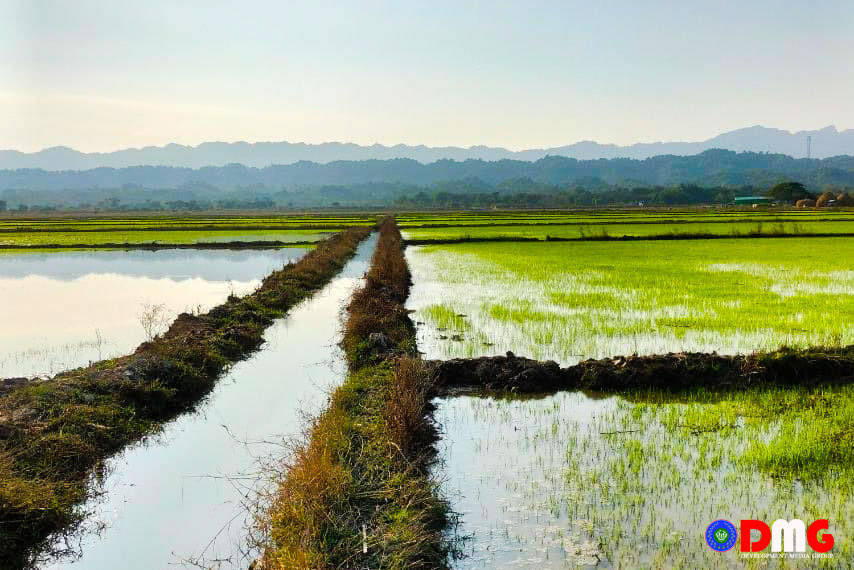
DMG Newsroom
23 February 2022, Sittwe
Summer paddy cultivation in Arakan State has dropped significantly in recent years due to rising commodity prices and myriad other factors, according to the Arakan Farmers’ Union.
In the years before the pandemic and military coup, about 1,500 acres of summer paddy were cultivated in Arakan State each year. More than 500 acres of summer paddy were planted in Arakan State in 2020, but only around 200 acres were planted this year, according to the Arakan Farmers’ Union.
Since the military seized power on February 1, 2021, the price of fertilisers has skyrocketed, the price of fuel has also increased, and water shortages have threatened summer paddy cultivation prospects, said U Kyaw Zan, chairman of the Arakan Farmers’ Union.
While summer paddy cultivation is on the rise in other regions, Arakan State lacks certain advantages, and the government ignores the plight of farmers, he added.
Less summer paddy cultivation will result in lower incomes for farmers, with the opposite also true: If summer paddy cultivation is expanded, farmers say they will have higher incomes and be able to create more job opportunities.
Last year, a bag of fertiliser cost about K40,000, but now the price of that same bag of fertiliser has risen to about K100,000, local farmers in Arakan State say.
Farmers say rising fertiliser prices, which are a critical component of summer paddy agriculture, and rising oil prices affecting ploughing, are challenges for farmers.
Summer paddy cultivation was effectively cancelled this year due to skyrocketing operating costs, according to U Soe Naing, chairman of the Danyawady Farmers’ Development Association in Arakan State’s Mrauk-U Township.
“I did not grow summer paddy because I could not afford the cost. Summer paddy cannot be grown mainly due to high fertiliser prices and fuel prices. Now a bag of fertiliser costs between K90,000 and K100,000. When summer paddy cultivation is not profitable, farmers are less interested,” he said.
There are irrigation canals in Kyauktaw Township to grow summer paddy, but there are almost no summer paddy growers due to lack of capital, according to locals.
U Maung Htwe, a farmer in Kyauktaw Township, said he received about 100 bags of fertiliser from the government at K40,000 per bag, so he could grow about 100 acres of summer paddy.
“There is enough irrigation water in Kyauktaw Township to grow summer paddy, but farmers do not grow summer paddy. We have bought 100 bags of fertiliser from the government for K40,000 per bag, so we can grow summer paddy,” he said. “If we had to buy fertilisers from outside [at current market prices], we would not be able to cultivate so many acres. The government must sell fertiliser at a cheaper price so that Arakanese farmers can grow summer paddy on a large scale.”
A bag of fertiliser is being distributed by the government at a subsidised price of around K40,000, acknowledged Daw Hla Theingi, deputy director of the Arakan State Department of Agriculture.
“For the convenience of farmers, fertiliser produced in Myanmar is being distributed to farmers in each township. A bag of fertiliser is being distributed for roughly K40,000. This year, more acres of summer paddy are planted than last year,” she insisted.
There are discrepancies between the government record and lists of summer paddy acreage kept on the ground, said U Kyaw Zan.
According to Arakan State’s Department of Agriculture, 614 acres of summer paddy have been planted this year: 452 acres in Kyauktaw, 61 acres in Ponnagyun, 64 acres in Mrauk-U and the remainder of acres in Buthidaung and Ann townships.





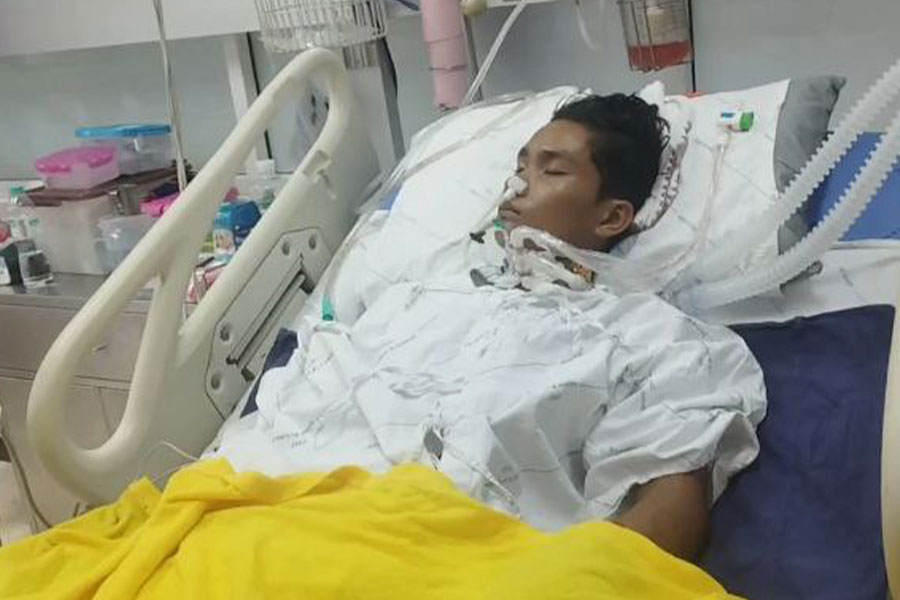
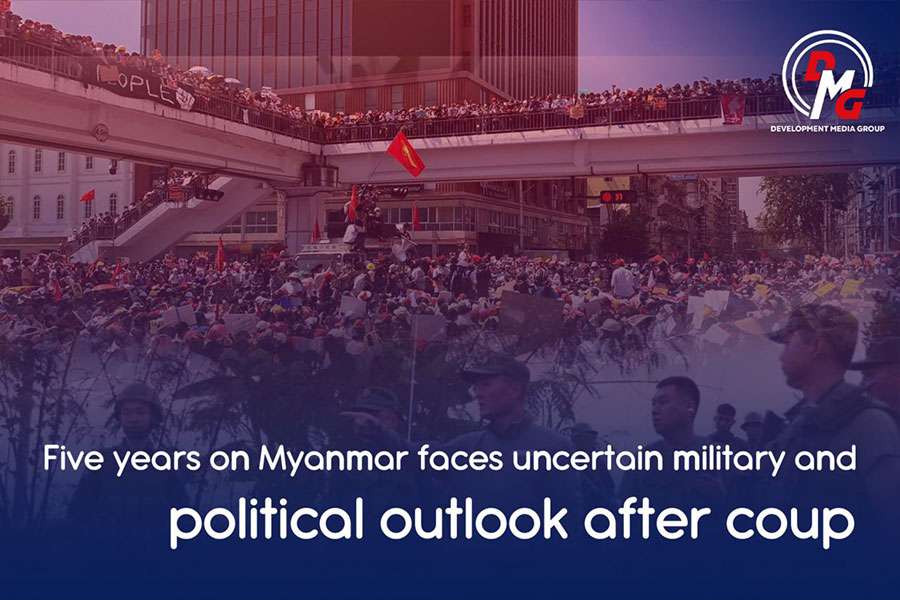
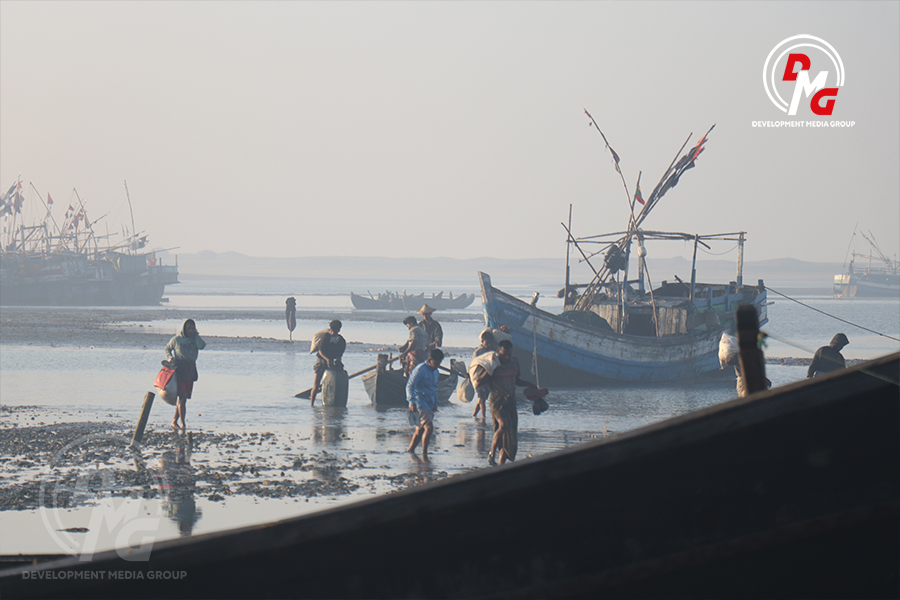
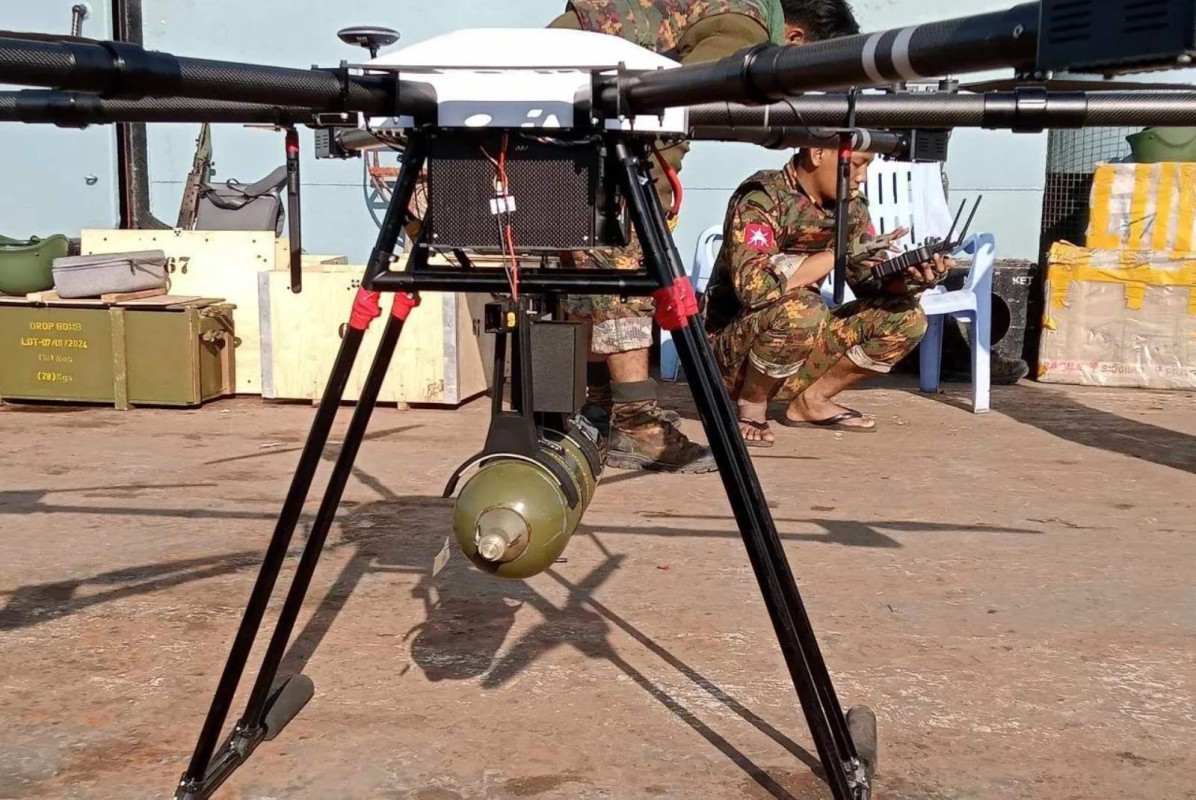






.jpg)

